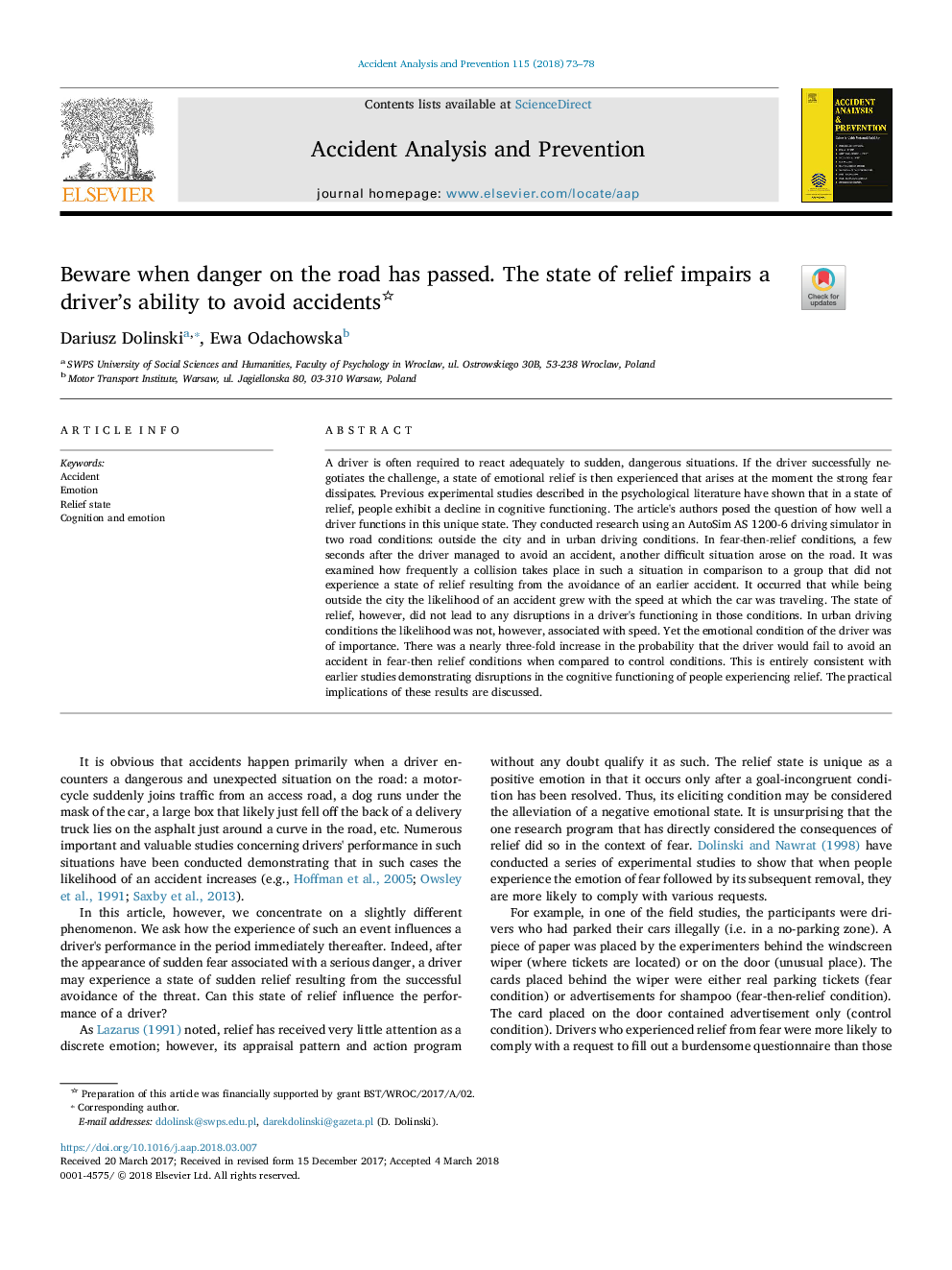ترجمه فارسی عنوان مقاله
مراقب باشید زمانی که خطر در جاده گذشت وضعیت امداد رسانی به توانایی رانندگان برای جلوگیری از حوادث ضربه می زند
عنوان انگلیسی
Beware when danger on the road has passed. The state of relief impairs a drivers ability to avoid accidents
| کد مقاله | سال انتشار | تعداد صفحات مقاله انگلیسی |
|---|---|---|
| 127511 | 2018 | 6 صفحه PDF |
منبع

Publisher : Elsevier - Science Direct (الزویر - ساینس دایرکت)
Journal : Accident Analysis & Prevention, Volume 115, June 2018, Pages 73-78
ترجمه کلمات کلیدی
تصادف، هیجانی، دولت امدادرسانی، شناخت و احساسات،
کلمات کلیدی انگلیسی
Accident; Emotion; Relief state; Cognition and emotion;

